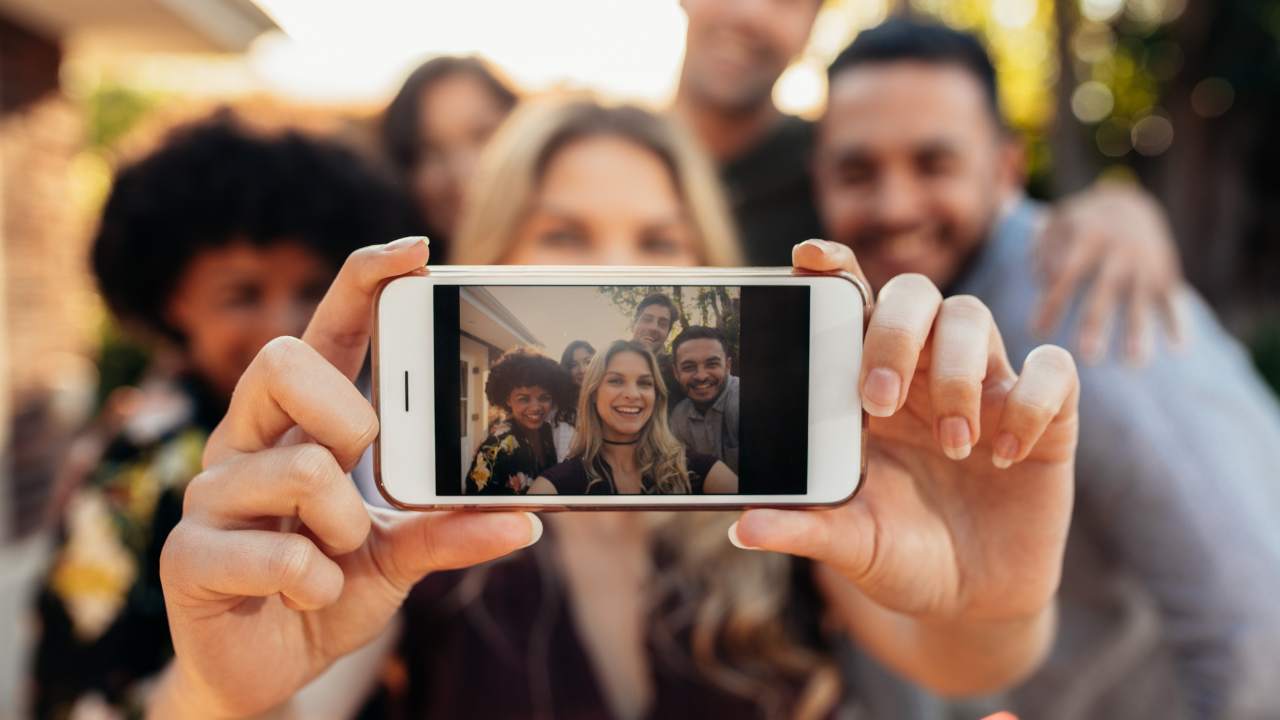The Netflix documentary, The Social Dilemma, has stirred up the fears of digital media and smartphone users. Many people already have concerns about how they are being tracked online and how their data is being used, and this show deepened concerns about how they are exposing themselves to the influence and manipulation of corporations, advertisers, and politicians.
The Social Dilemma discloses how social media channels like Facebook, YouTube, Pinterest, and Twitter, as well as email providers and search engines like Google, have access to our personal details.
It goes on to demonstrate how these corporations use our data, not only to sell us stuff, but to manipulate us into an addiction to their services, to influence our opinions on social and political issues, and potentially to coerce us to do things we would not otherwise consider doing.
The Social Dilemma increases the power of their messages by interviewing many credible individuals from virtually every digital channel, including:
- Google: Tristan Harris, former Google Executive and Guillaume Chaslot, former Google Engineer
- Instagram: Bailey Richardson, one of Instagram’s first 13 employees
- Facebook: Sandy Parakilas, former Operations Manager and Tim Kendall led the charge for monetization of the popular network
- Twitter: Alex Roetter, SVP of Engineering
- Pinterest: Tim Kendall, former President
The documentary has sparked terror in viewers regarding their privacy and the idea that these digital channels may have too much control over their lives and the lives of their children.

DISCLAIMER
Full disclosure: I’m a marketer. I love researching and understanding algorithms. I love the capability digital media provides so our team at IMPACT can help our corporate and education clients identify an audience of people who will actually be interested in what they have to offer. In my opinion, the intelligent data provided by these organizations steers us away from spamming those who are not in the market for our client’s products and services.
Even as a consumer, I appreciate seeing ads that are relevant to me. I do admit, my preference would be to not see ads in my feed at all, but if I’m going to see ads I’d rather not see pick-up trucks or nail polish because those things aren't my jam. Show me wine, outdoor events, or running gear and it will put me in a good mood and, yes, I may even buy something!

Typical ad in my Facebook feed, catering to my interests.
Facebook and Google are “free” and it's the advertisers that pay for our privilege of using the service.
“If you’re not PAYING for the product, you ARE the product.”
Tristan Harris, former Google Executive
While I love the marketing capabilities of digital media, I have concerns. I am most disturbed about how we are served information, posts, and content from our contacts that most align with our existing point of view. I’m concerned about the lack of exposure we have to content that challenges our beliefs and diversifies our views on subjects of social, political, and lifestyle.
We all think we are savvy and smart enough to look at all sides of a story, but we can’t help but be influenced by the stories we see. It makes sense that Facebook is going to serve us content similar to what we spend time viewing, reading, liking, and commenting on. That’s the service they provide! However, this method is creating more division in our society than ever before.
Stories that look like authoritative articles and quotes taken out of context with their own spin are appearing one way on your feed and another way for that person on the other side of the political or current event fence.
“Two billion people will have thoughts they didn’t intend to have because a designer at Google said this is how notifications work on that screen that you wake up to every morning.”
Tristan Harris, former Google Executive
HOW TO PROTECT YOUR PRIVACY ONLINE
Personally, I want to stay connected via social media with my friends, family, and associates around the world. I want to continue using the tools for business purposes. However, I want to have a balanced view of current events and politics, and I don’t want every move I make to be tracked by the big data corporations.
So what can we do to mitigate the exposure of our private data and the control technology and algorithms have on our lives? Here are some of the things I’m personally shifting and what you can do as well.

The best way to protect your privacy online is to turn off your computer or, at least, disconnect it from the Internet. Since most of us use social media and search engines like Google to connect with friends and family, interests, and hobbies, disconnecting from the Internet isn’t really an option.
Under the assumption that you would like to stay connected to the web, let’s talk about how to maximize your privacy while still utilizing these tools.
1- GET RID OF SINGLE SIGN-ON
Single sign-on is the term used to describe when you use your Gmail or Facebook account to sign in to another account instead of creating a unique username and password. It’s so convenient! But every time you do this, you are giving Google or Facebook access to yet another source of information on your behavior and interests. Other single sign-on sources include, but are not limited to, Yahoo, LinkedIn, Microsoft, Apple, and others.
 When giving the option between using your email address and using Google, Facebook, or Apple,
When giving the option between using your email address and using Google, Facebook, or Apple,
opt to use an unaffiliated email address.
2- SIGN UP FOR A UNIQUE EMAIL ADDRESS
If your email address is associated with Google, Yahoo, Apple, Microsoft, or other major data players, they don’t only have access to everything you sign into with those accounts, they also have access to all the content you send or receive by email. Don’t get me wrong, I don’t think anyone is reading your email, but the combinations of words and phrases are going into the algorithm.
I’m not confident there is an email service that does not track or sell your data, but you can avoid a single source having every byte by diversifying the resources you use to communicate.
3- USE ALTERNATIVE BROWSERS TO CHROME AND SAFARI
Logic dictates that if you don’t want Google to track your every move, don’t use Google. Your Chrome browser is owned by Google and your favorite search engine tracks everything you search for and click on.
You can limit your exposure by mixing up your search and browsing habits, and using a browser that isn’t owned by Google (Chrome), Microsoft (Edge, Explorer), or Apple (Safari). Firefox is one well-known alternative, but there are others. Check out this PC Magazine article with some other options.
4- GO INCOGNITO
You may want to do this out of curiosity if nothing else, but using incognito also prohibits the browser from tracking browsing patterns to your personal data profile.
Whether you want added protection or you just want to see how Google is delivering results according to your own biases, first do a search in your usual manner and then do the same search on an incognito tab.
In Chrome, you access incognito by clicking on the three dots at the top right corner of the browser and selecting “New incognito window”. Repeat the search in the new tab using the same search terms, and see how the results differ.

Where to find “incognito” on your Chrome browser.
5- AVOID CLICKING ON SUGGESTED VIDEOS
If this is a big struggle for you, take note. The fact that irresistible videos are served up to you, one after the other, is a sign that YouTube, Facebook, or Instagram has your profile dialed in. They know exactly how to keep you on their channel so they can increase the value of their service and serve you more ads.
Every time you click on another video, you are adding data to your profile about your likes, opinions, biases, political and social leanings, and fascinations.
Suggested videos can show up in the right column on the desktop view, below the video on your smartphone, and will be recommended upon completion of the current video on YouTube Facebook, and others.

and will be recommended upon completion of the current video on YouTube Facebook, and others.
6- PURSUE CONTENT CONTRARY TO YOUR BELIEF SYSTEM
That’s right! Intentionally follow and engage with people who are in opposition to your beliefs. To avoid receiving messages that are customized to manipulate you according to your habits and weaknesses, you need to take responsibility for pursuing other opinions.
Keep an open mind and have discussions about other individual’s beliefs. Test your beliefs against news from sources you don’t typically follow. Beware of gossip websites and non-credible news sources, but don’t write off the opposition’s favored source as non-credible.
Try tuning in to the BBC or another media channel outside of your own region. This will encourage the algorithms to serve you a more balanced mix of content and viewpoints rather than reinforcing your own.
7- DON'T TAKE THEIR WORD FOR IT
If something sounds outrageous, there’s a good chance it’s false. Before you get outraged and feel compelled to re-share the content or comment on a sensational post, find the source, and verify whether it’s reliable. See if other sources support the claims made.
Take some responsibility to stop false, exaggerated, or one-sided views from spreading.
8- DO AN INTERMITTENT TECHNO-FAST
Consider putting yourself and your family on a techno-diet, specifically an intermittent techno-fasting diet.
Define a window of time each day that you access screens and a time that you are all screen-free. Perhaps before dinner each day you all throw your technology into a drawer until the next morning.
9- PROTECT YOUR CHILDREN
I don’t have young children, but I was the parent who made my kids go to bed at 8 p.m. even when their friends played on the street right outside their bedroom windows until 10 p.m. I was the mom who wouldn’t let her kids watch The Simpsons because of the way the kids spoke to their parents and other adults.
It’s your call, of course, but the longer you hold off on allowing your children to have smartphones and other devices for personal use, the better. I specify “for personal use” because understanding technology is an integral part of adult life and should be incorporated into education in a safe environment.
When you do give in and provide a device to your child, take advantage of parental controls and limit access to social media and chat channels that subject children to content above their maturity level, open them up to the possibility of bullying, and subject them to pervasive distraction.
10- TURN OFF NOTIFICATIONS - CURB YOUR ADDICTION
Stop your own addiction to technology. If you think everyone expects an immediate response, you’re wrong. You’ve trained your contacts to expect whatever communication turnaround time you’re currently delivering.
At minimum, turn off your audible notifications for email and social media. I keep mine on for some messaging apps and text messages. Direct contacts know to reach me there for a quick response, but I keep everything else switched off. I keep the visual notification on for email and LinkedIn, but I only check them at specific times each day.
Create your own protocols to minimize being controlled by the media, to avoid addictive behaviors, and to be present to whatever humans or work you are tending to.
Key Takeaways
The Social Dilemma didn’t share anything that revolutionary, it mostly sensationalized what we already know. But I was struck by the polarity perpetuated through digital media serving us “more of what we want” as we naturally surround ourselves with people and resources that support our current beliefs.
Also, if you listen between the lines, you will note that many of the spokespeople in this film are personally using digital media and allowing their children some degree of access. Unfortunately, the film is so focused on the fear-inducing strategies of the media, that they neglect to offer solutions to mitigate the potential harm of technology.
While the ultimate solution is to unplug everything, the alternative is to take responsibility for how and when you use these services.
I welcome your opinions and feedback. Feel free to click here to send me an email if you want to discuss this or anything else related to digital media or international business growth.
Do you want to know more about the work IMPACT International does for Business or Schools?
Click here to learn about our work with Schools.
Click here to learn about our work with Businesses.





SUBMIT YOUR COMMENT